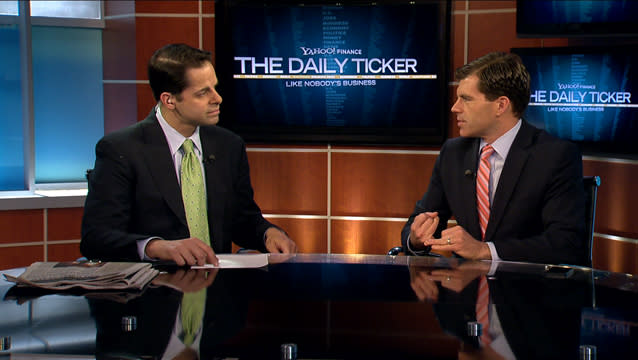Real Economy Avoids Risk-Taking as Wall Street Embraces It

Has the intrepid American entrepreneur turned timid? Is the courageous, risk-embracing business pioneer becoming like the cowboy: a popular icon of a bygone time rather than a reflection of what America has become?
We might not be quite there. But there is a broad array of evidence, much of it hashed out in a long Wall Street Journal feature, that American workers and companies have grown more risk-averse in recent years.
Companies are less eager to expand payrolls to grow; the rate of small-business creation has ebbed; investment in startups is sluggish; workers are less likely to leave a job for a better opportunity; families aren’t as willing to move to a part of the country with more vibrant economic prospects. If these trends persist, it will restrain the pace of long-term economic growth.
Is this pattern simply the normal evolution of a mature economy with an aging population that recently went through the deepest and most-frightening recession in decades?
With Baby Boomers straddling retirement age and plenty of slack remaining in the labor and manufacturing sectors, the economy might simply not invite as many new-business launches or brave career moves – even as we lionize Elon Musk’s fearless development of electric-car maker Tesla Motors Inc. (TSLA).
The data on growing economic risk aversion, of course, is somewhat counter to the impression left by the boom in Silicon Valley, the New York digital media and the flourishing of the “app economy.”
As Yahoo! Finance Editor-in-Chief Aaron Task notes in the attached video, young 20-something workers do not expect to work securely at one big company for their whole careers. They seem eager to find their own way, often stitching together freelance work and testing out new cities for work opportunities. Perhaps, if the fitful economic recovery gains traction and speed over another couple of years, younger workers and entrepreneurs will emerge as a broader force again – the way the tough economy of the 1970s incubated the personal-computer and Internet revolution.
The public has also become less enthusiastic about money. Even though consumer confidence has rebounded to its highest level in five years, it remains near levels that used to be associated with recessions back in the 1980s.
This long-term downtrend in confidence seems linked to the peaking of the growth rate in the labor-force in the mid-1980s. The generally uninspiring velocity of the last three economic recoveries also appears related to these demographic tides.
In a telling irony, though, this picture of a risk-averse economy emerged at the same time the Bank for International Settlements issued a warning that the aggressive easy-money policies of world central banks has stoked a dangerous level of risk-taking – by investors and banks.
"Abundant liquidity and low volatility fostered an environment favoring risk-taking and carry trade activity," said the BIS, an organization that acts as the central node for global central banks.
This, too, could be an outgrowth of a high-tech world economy with developed-country populations aging, excess stores of savings in search of return, and global trade and capital flows allowing money to dart among markets at the speed of light.
Yet, as Task notes, lots of risk-taking in financial markets and growing risk-aversion in the real economy is probably the reverse of what policy makers and the rest of us would probably want to see.
Tell Us What You Think!
Got a topic you’d like covered? Have a guest you’d like to see interviewed? Send an email to: thedailyticker@yahoo.com.
You can also look us up on Twitter and Facebook.
More from the Daily Ticker:
Housing Recovery Is a Sham Says the Guardian’s Heidi Moore
Sell in May and Go Away' and Other Sayings Best Ignored
There Is No Stock Market Bubble: New Yorker’s James Surowiecki
